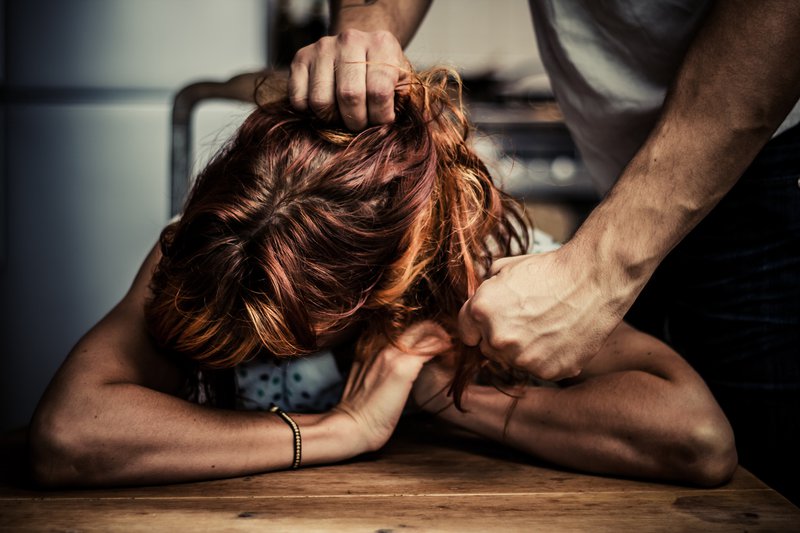Debunking myths around Gender-Based Violence
Updated | By Lifestyle Reporter
Relationship Expert Paula Quinsee tackles the issue of Gender-Based Violence and offers solutions for how to best deal with it.

Whether we want to admit it or not, domestic abuse (GBV) happens on a daily basis in our homes, our communities, and our businesses. COVID-19 has just put a spotlight on this pandemic due to the spike in both divorce and GBV stats globally, as a result of being in lockdown.
“We can no longer ignore this silent, often violent killer, and the destruction it causes to individuals, families and communities,” says Relationship Expert Paula Quinsee.
READ: Why do some women remain in an abusive relationship for years?
GBV is often almost exclusively associated with physical violence or rape. Very seldom are the other forms of abuse spoken about, namely:
- Psychological abuse
- Verbal abuse
- Emotional abuse
- Financial abuse
GBV is also often associated with male on female abuse, but very little is spoken about the female on male or LGBTQI abuse that takes place in homes and communities too.
Quinsee states: “If we want to eradicate GBV then we need to address GBV across the spectrum – men, women, LGBTQI. If we want to eradicate GBV then we need to address both victims and perpetrators equally because we do not have one without the other. If there were no perpetrators, there would be no victims.”
READ: Leanne Manas on fighting the abuse of women and children
If we want to eradicate GBV then it needs to start in our homes which is where our first exposure of being in a relationship is established – that of our primary caregivers or parents.
We learn from our primary caregivers what it looks and feels like to be in a relationship. We model our behaviours on how they engage, respond, and react in their relationship and towards their partners, and this is where our emotional and relational foundation is formed.
Quinsee says: “Abuse is a learned behaviour, it is a choice to abuse and the behaviour can be changed if the abuser is willing to take responsibility for their behaviour and make sustainable changes.”
Another seldom spoken about area of abuse is that which happens within organisational walls, such as:
- Bullying
- Sexual harassment
- Inappropriate behaviour and misconduct
- Using a position of power or authority
- Underlying threats of job loss or career progression
According to a 2014 study by KPMG, gender-based violence (GBV) costs SA between R28.4bn and R42.4bn a year — or between 0.9% and 1.3% of GDP annually, which is, sadly, in line with global GBV estimates. SA also has the highest rape statistics in the world.
Quinsee’s colleague, Social Media law expert, Child Rights activist, and Labour law specialist, Diana Shwarz, states that “with many employees working from home these days, companies are starting to be exposed to the reality that some of their employees are not safe at home. This can have a severe impact on work deliverables, productivity, and mental health.
"COVID-19 has definitely highlighted the abuse and worsened the circumstances victims find themselves in, but the fact is this abuse has been ongoing for decades. The difference is that now as a result of the pandemic, the home has become the workplace and it is not only a domestic issue but a corporate issue. Employers have a duty to ensure a healthy and safe working environment for their employees in terms of OHSA, which includes an environment free of harassment, bullying, and abuse.
"It’s a complex situation to be in, as where do the responsibilities lie, with the employee and their home situation, or the employers requirement that they work from home? What resources do employees and employers have in place to support employees to be able to operate in a safe working environment?”
South Africa has the highest rate of rape in the world of 132.4 incidents per 100,000 people. According to a survey conducted by the South African Medical Research Council, approximately one in four men surveyed admitted to committing rape. Although the Parliament of South Africa attempted to amend and strengthen all sexual violence laws with the Criminal Law (Sexual Offences and Related Matters) Amendment Act in 2007, the rates of reported rape, sexual abuse of children, and domestic violence have continued to rise (Source).
“We can no longer ignore this pandemic, it needs to be a part of our everyday conversations not just when someone falls prey to GBV or it happens to be a national day or annual campaign marked in the calendar,” says both Quinsee and Shwarz.
By cultivating a ‘speak up’ vs ‘shut up culture’ in our homes, communities, organisations, and countries, we are able to remove the stigma, the social conditioning, and the labels making it OK for both victims and perpetrators to speak up and get the help they need to start the healing process, ending GBV.
Image courtesy of iStock/ @lolostock
Article source: Paula Quinsee
Show's Stories
-
Inside the Golden Globe gift bags worth R18 million
You might be surprised to find out what you can fit into a stylish brown...
The Drive with Rob & Roz 8 hours ago -
Japan actor fired from beer ad after drunken escapade
A popular Japanese actor hired to be the wholesome face of a low-alcohol...
The Drive with Rob & Roz 8 hours ago